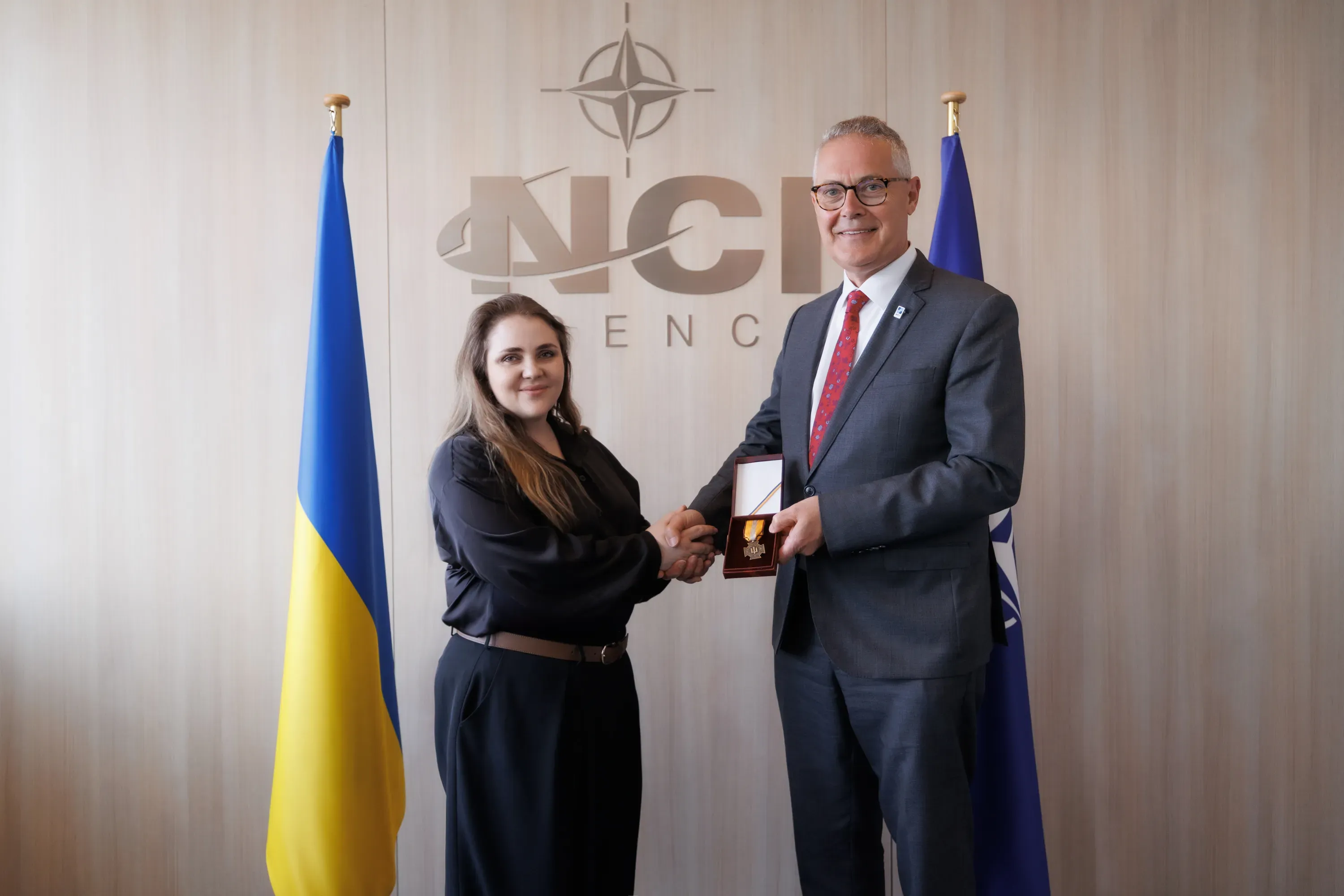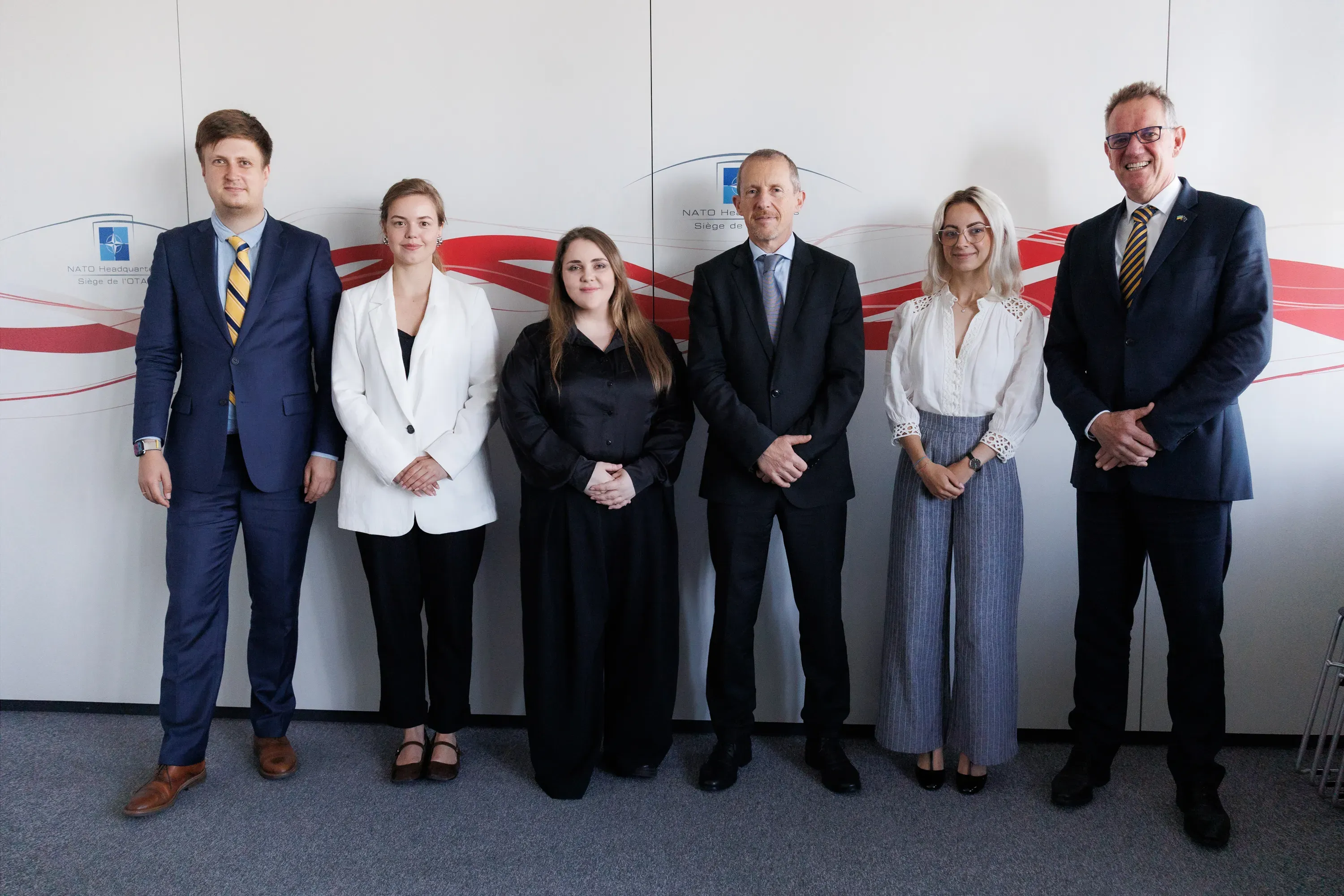The Ministry of Defence and NATO have mobilized nearly €37 million for satellite communications for the Defence Forces of Ukraine

The Ministry of Defence of Ukraine and NATO have implemented several joint projects aimed at developing Ukraine’s digital infrastructure. These projects have improved the provision of communication tools and information systems to Ukrainian defenders. They have also enhanced command and control, as well as situational awareness capabilities.
These matters were discussed during a meeting at NATO Headquarters in Brussels between Ukraine’s Deputy Minister of Defence for Digital Development, Kateryna Chernohorenko; Deputy Director of NATO Digital Staff, Marco Criscuolo; and General Manager of the NATO Communications and Information Agency (NCIA), Ludwig Decamps.
“Ukraine’s experience with digital transformation on the frontline—especially in using cloud technologies and AI—shows that secure, flexible digital solutions can be scaled even in the toughest conditions. This is a powerful example of innovation and resilience in action,” said Marco Criscuolo, Deputy Director of the NATO Digital Staff.
NATO provides practical support to Ukraine through the Comprehensive Assistance Package (CAP).
Key outcomes of this cooperation so far include:
- Nearly €37 million for satellite communications, including satellite radios, trackers, and services; The total value of the projects is expected to exceed €70 million in the coming months;
- Ongoing cooperation and support with the Center for Innovation and Development of Defence Technologies, including collaboration with the development team of the DELTA combat system;
- 3,000 laptops, 728 printers, 485 tablets, 72 monitors, as well as server and network equipment, were delivered to the Ministry of Defence Data Processing Center to support the expansion of the Medical Information System, a key component of medical reform in the Defence Forces;
- Enhancing interoperability between Ukrainian and NATO capabilities;
- Ukraine’s participation in key NATO initiatives related to Command, Control, Communications, and Computers (C4), notably Federated Mission Networking (FMN), cloud-based initiatives, and interoperability validation exercises;
- Providing equipment and software, as well as conducting associated training, to enhance air defence capabilities.
The NATO Communications and Information Agency (NCIA) is the executive body responsible for many Comprehensive Assistance Package (CAP) projects for Ukraine. It provides advisory and technical assistance under the bilateral Technical Cooperation Memorandum signed between Ukraine and the NCIA in January 2022.

“We are extremely proud to support Ukraine and contribute to its digital resilience, paving the way for deeper interoperability with the Alliance. Our cooperation under the Comprehensive Assistance Package reflects NATO’s broader commitment to Ukraine’s long-term security and stability,” said Ludwig Decamps, NCIA General Manager.
During the visit, Deputy Minister of Defence of Ukraine for Digital Development Kateryna Chernohorenko discussed the current status and progress of joint projects and outlined opportunities for further cooperation with the NATO Digital Staff and NCIA.
“The support provided under the Comprehensive Assistance Package has served as a catalyst for large-scale digital transformation across the Defence Forces — not only on the front lines, but also in logistics and supply systems. Thanks to this support, we are building a faster and more effective army. I believe that our productive cooperation will continue, and these reforms will continue to expand,” said Kateryna Chernohorenko.
The Comprehensive Assistance Package for Ukraine is NATO’s key instrument for providing practical support. It covers two main areas: urgent non-lethal military assistance in response to Ukraine’s requests, along with long-term projects aimed at developing capabilities, supporting reforms in the defence and security sector, and facilitating post-war recovery.
The visit reaffirmed NATO’s commitment to supporting Ukraine through practical cooperation, technical expertise, and sustained partnership.